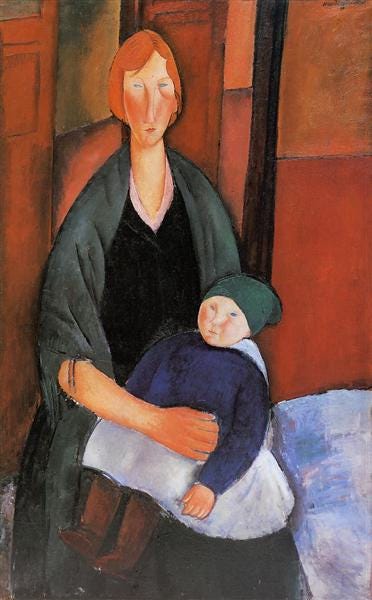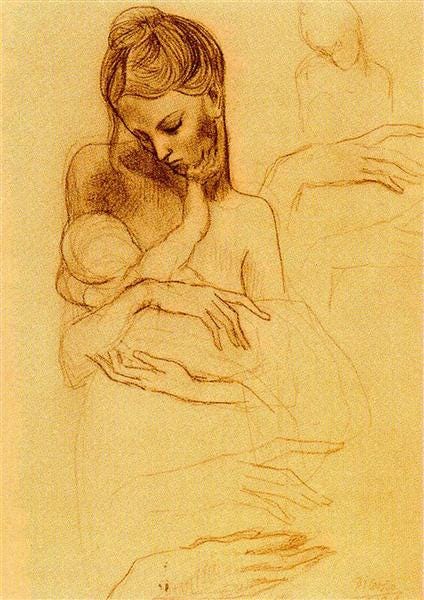Answer: It depends.
Both the childless and the childfree are defined as people (men too—though it’s most often thought of in terms of women) who have never had a biological child or raised or adopted a child. The “childless” are denied children; the childfree feel they’ve been given the gift of not having had to have them. (There’s also the term “nulliparous” used to describe a female animal that’s never given birth, but that feels too zoo-like.)
Often in the United States, the childless are thought of as cursed. Not having children is treated as a misfortune. Books and articles counsel how to “survive” life without a child. Of course, much of this is geared toward those who wanted children and were unable to have them.
But more people are making the decision to be childless. Nearly a third of the U.S. is childfree (that’s over 130 million people). In 2021, 27 percent of not-yet-parents said they’d prefer not to have children. Over 15 percent of American women ages forty-five to fifty are childfree (or childless, depending on the circumstances). That’s almost fifty million women. A New York Times poll found that 36 percent of women twenty to forty-five said they didn’t want children or weren’t sure. As of late, childfree people have become more vocal, more willing to be proud of (and grateful for) their choice.
It’s taken a long time for women to earn the right not to have children. It’s come as a result of many factors: birth control, having the right to vote, not having to marry, financial independence, the concept that (perhaps) women are equal to men and can make their own decisions. We’re finally at the point where Gloria Steinem, who, in quoting someone else, is finally right: “‘Everybody with a womb doesn’t have to have a child any more than everybody with vocal cords has to be an opera singer.”
Being childfree is nothing new. In nineteenth- and early twentieth-century America, 30 percent of women opted out. (It’s believed that they did so by choice.) High rates of being without children continued throughout the Great Depression. Rates dipped during the 1950s, too. From the mid-1970s through the 2000s, they’ve been increasing.
Throughout history, the idea that someone socialized as a woman might not want offspring has been, to some, unfathomable or even evil. In the 1600s, women free of children were accused of being witches. During the 1990s, 2000s, and 2010s, being childfree meant you were selfish, shallow, and neurotic. In 2011, one woman’s Facebook post, in which she declared herself childfree, garnered a hate storm. Today, some consider a woman without kids to be unnatural, frigid, even a failure. The you’re-selfish-if-you-don’t-have-kids rhetoric is still around.
That may be starting to change.
We now have a holiday: August 1 is International Childfree Day. Organizations exist in support of the childfree, like the National Alliance for Optional Parenthood. We have Meetups. And websites. And support groups.
We could eventually come to be admired. In light of the climate crisis, having children has become a moral question. Some say that those who have children will accelerate climate change by increasing the population and thereby carbon, bringing about more natural disasters. Others feel forced not to have children because they’ll be raising them in “an increasingly dangerous and toxic environment.”
Admiration for those who have the luxury of choosing to be childfree come after celebrities do it. Prince Harry and Meghan Markle have vowed to have only two children, thereby only replacing themselves. Singer Miley Cyrus is skeptical of childbirth. Representative Alexandria Ocasio-Cortez (known by her fans and enemies as AOC) raised the issue during an Instagram Live. Oprah Winfrey chose not to have children. So did journalists Diane Sawyer and Maureen Dowd. And money whiz Suze Ormand. And comedian Lily Tomlin. And rap icon Queen Latifa. And the writer and activist Angela Davis. And Supreme Court Justices Elena Kagan and Sonia Sotomayer. And former U.S. National Security Advisor Condoleezza Rice.
And actresses like Jennifer Aniston, about whom, as she wrote in an essay, the media has devoted an absurd number of resources “trying to simply uncover whether or not I am pregnant…points to the perpetuation of this notion that women are somehow incomplete, unsuccessful, or unhappy if they’re not married with children.”
And authors like Elizabeth Gilbert, who said, “I have come to believe there are three sorts of women, when it comes to questions of maternity. There are women who are born to be mothers, women who are born to be aunties, and women who should not be allowed within ten feet of a child. It’s really important to know which category you belong to.”
Discrimination, marginalization, and oppression play a negative role in the decision not to have children. Hardship makes a difference: lack of access to childcare, the costs of childrearing, unemployment, financial insecurity. Rates among blacks have often been higher than those among whites likely due to adversity.
There are extremists among the childfree. Anti-natalists are the main group. They don’t just want people to stop procreating; they see life as meaningless and wish they’d never been born.
But among the moderate child-free, there’s no self-hatred, no lack, no sense that you’re somehow deficient by not fitting into what is (by all counts) one of the supposed purposes of being alive. It also saves you a lot (and I mean a lot) of money. We’re exempt from the whole massive sales-marketing strategy that begins with unfathomably expensive baby strollers and ends with insurmountably high college tuition costs. (Yes, we’re sold the idea that college—especially certain colleges—should be offensively expensive. My heart goes out to parents everywhere.)
Believe it or not, I’ve never pined for a child. I’ve never sincerely entertained the idea of having one. It wasn’t even a hard-no, not even a decision. Having a child just…wasn’t for me. Like volleyball. And bucket lists. And….









Thank you for this deliciously REASONABLE piece on non-parenthood! I am childless not by choice (and very much at peace with that these days) and now 60, my work focuses on the 'adventure of elderhood without motherhood' - because whether it's choice/not-choice or one of the many nuanced places in-between, aging without children deserves more thought, and more support!
Noting in my life has brought me more joy and satisfaction than my kids and now grandkids. I always knew I wanted them. If you do not feel the same, please do not have any! My heart breaks at all the unwanted and badly parented children.